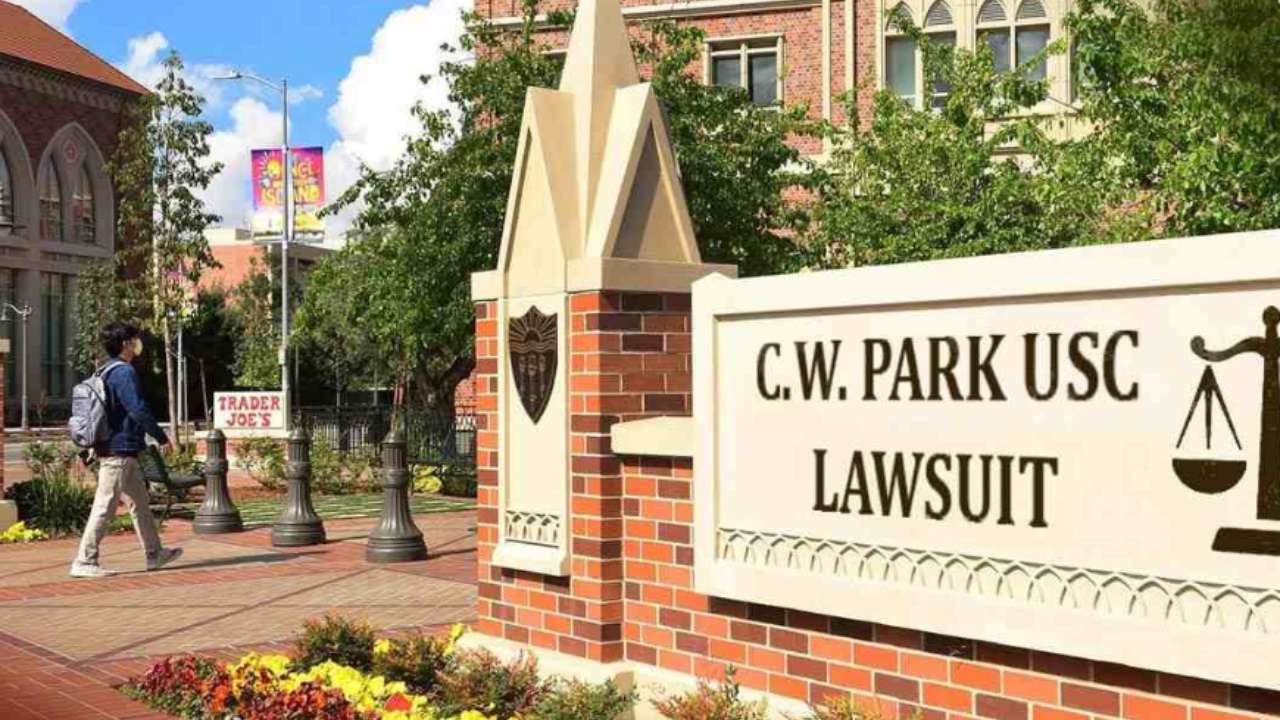The lawsuit involving C.W. Park has sent ripples through the USC community, casting a long shadow of uncertainty over the future of the institution and its students. As news of the legal proceedings unfolded, questions began to surface regarding its implications on the academic integrity of the institution, the welfare of its students, and the overall reputation of USC.
The objective of this blog post is to delve into these concerns, offering a comprehensive perspective on the current scenario. We aim to provide a balanced viewpoint, incorporating reactions from various stakeholders within the USC community, including students, faculty, and alumni, to paint an accurate picture of the situation at hand.
This issue is not just about an individual or a singular event but reflects a broader narrative about accountability, transparency, and the pursuit of truth within the academic sphere.
What is the C.W. Park Usc Lawsuit?
The C.W. Park lawsuit stems from allegations of financial misconduct in the USC Marshall School of Business, where Park served as a marketing professor. The lawsuit, filed by a former student, alleges that Park misused funds intended for research purposes. This has sparked a firestorm of reactions from the USC community, causing distress and prompting calls for increased transparency and accountability within the institution’s administration.
The controversy has particularly affected students, who are concerned about the potential fallout on their education and career prospects. The lawsuit raises severe questions about the ethical standards of the institution they trusted, potentially tainting their academic achievements and undermining their degrees’ value.
Amid this uncertainty, students are rallying for clarity, demanding detailed communication from the university administration regarding the steps being taken to address the situation and ensure such incidents don’t recur. This lawsuit symbolizes a moment of reckoning for USC, as it navigates its way through the crisis, striving to restore trust, uphold academic integrity, and bolster its reputation in the wake of this controversy.
 Background on the C.W. Park Lawsuit
Background on the C.W. Park Lawsuit
The crux of the lawsuit against C.W. Park lies in alleged financial misconduct. The case was initiated by a former student of the USC Marshall School of Business, who claimed that Park, a marketing professor at the institution, had misappropriated funds allocated for research activities. The specifics of these allegations suggest that Park used these funds for personal gain, thereby violating the ethical and professional standards expected of a faculty member at USC.
The plaintiff in the case has chosen to remain anonymous, identified only as “John Doe” in the lawsuit documents. This decision has led to speculation and fueled the controversy surrounding the case, as the USC community wrestles with the implications of these allegations. The lawsuit not only implicates Park but also raises questions about the broader conduct and oversight of financial operations within USC, particularly within the Marshall School of Business.
This legal wrangle has brought USC into sharp focus, prompting a deep introspection about its internal processes, ethical standards, and commitment to transparency. The outcome of the case could have far-reaching implications, shaping the narrative of accountability and integrity within higher education.
Direct and Indirect Implications for USC Students
The lawsuit involving C.W. Park has both direct and indirect implications for USC students. Directly, this incident has resulted in a heightened sense of vigilance within the university’s administration. USC has taken the initiative to review its financial oversight procedures, particularly in the Marshall School of Business, aiming to prevent any future misconduct of this nature.
These enhanced measures might lead to rigorous administrative changes and stricter protocols for fund allocation and auditing, ensuring that every dollar is accounted for and used judiciously.
Indirectly, the financial implications of the lawsuit could potentially impact tuition fees. While there is no explicit statement from the university, depending on the outcome of the lawsuit, the university may face hefty fines. This might translate into increased tuition or other fees to compensate for the financial losses.
Moreover, the lawsuit has undoubtedly tarnished USC’s reputation to some extent. This can indirectly affect students, especially graduates, as the reputation of their institution plays a significant role in their career prospects. Potential employers might perceive a degree from USC differently in light of these allegations, possibly affecting the perceived value of an education from USC.
However, it’s essential to note that the strength and resilience of the USC community during this crisis also defines the institution. Therefore, the ultimate impact on students would significantly depend on how USC handles this situation and restores the trust and integrity associated with its name.
How USC Students Can Respond
In the wake of these events, there are several avenues available for USC students to respond, address their concerns, and actively participate in shaping the discourse surrounding this incident. One of the immediate methods is to directly voice concerns to the administration.
Students can pen open letters, use town hall meetings, or route their concerns through student representatives to communicate with the university’s administration. This will ensure that student voices are heard and their concerns are addressed by those in charge.
Legally, if students believe their rights have been infringed or they have been negatively impacted due to financial misconduct, seeking legal counsel can be another course of action. Legal professionals can guide students on their rights, potential remedies, and the process involved in pursuing a legal course of action.
Lastly, organizing or participating in student movements can be a powerful way to express solidarity, demand accountability, and push for reforms. Protests, peaceful marches, or online campaigns can draw attention to the student’s concerns and encourage university authorities to take prompt action.
This situation, while challenging, also presents an opportunity for USC students to come together, engage in constructive dialogue, and play a crucial role in advancing transparency and accountability within USC.
The Potential Outcomes
In conclusion, the future remains uncertain as the lawsuit against C.W. Park unfolds. The potential outcomes are varied, with each carrying its own set of implications for USC students. A ruling against Park could lead to significant changes in university policies to ensure tighter financial controls and stricter ethical standards, which could in turn reshape the academic environment at USC.
However, it must be acknowledged that this could also lead to increased scrutiny of degrees earned from USC, potentially impacting the career prospects of graduates. On the other hand, if Park is exonerated, the university will still need to work towards rebuilding the trust that has been shaken among its students and the public.
This may involve transparent communication, reforms in existing procedures, and a renewed commitment to upholding academic integrity.
Frequently Asked Questions about C.W. Park USC Lawsuit
Q: What does the C.W. Park lawsuit mean for USC students?
A: The lawsuit implicates financial misuse by a faculty member and could lead to changes in university policies, increased scrutiny of USC degrees, and potential increases in tuition fees.
Q: How might this lawsuit affect tuition fees at USC?
A: While unconfirmed, depending on the outcome of the lawsuit and any potential fines levied against USC, tuition fees or other costs may increase to compensate for financial losses.
Q: Will this lawsuit impact the value of my degree from USC?
A: The allegations have tarnished USC’s reputation to an extent, which could potentially influence how employers perceive degrees from USC. However, the ultimate impact will depend on how USC handles the situation and restores trust.
Q: How can I as a student voice my concerns about this issue?
A: Students can pen open letters, use town hall meetings, or route their concerns through student representatives to communicate with the administration.
Q: Is legal action a valid course of action for students who feel negatively impacted?
A: If students believe their rights have been infringed or they’ve been negatively impacted, seeking legal counsel is a possible course of action.
Q: Can student movements make a difference in this situation?
A: Organizing or participating in student movements, such as protests, peaceful marches or online campaigns, can draw attention to student concerns and encourage university authorities to take action.
Q: What might happen if C.W. Park is found guilty in the lawsuit?
A: A ruling against Park could lead to significant changes in university policies to ensure tighter financial controls and stricter ethical standards.
Q: How might USC change if C.W. Park is exonerated in the lawsuit?
A: Even if Park is exonerated, USC will still need to work towards rebuilding the trust that has been shaken among its students and the public, likely through transparent communication and procedural reforms.
Q: Does this lawsuit have implications beyond USC?
A: Yes, the outcome could shape the narrative of accountability and integrity within higher education, potentially influencing standards at other institutions.
Q: Can this situation present any opportunities for USC students?
A: This situation presents an opportunity for USC students to engage in dialogue, demand accountability, and play a role in advancing transparency within the university.








Leave a Reply